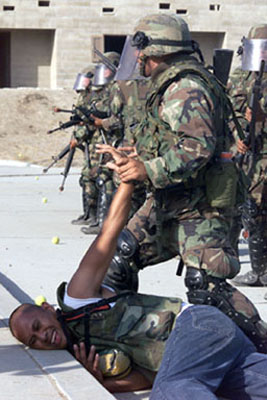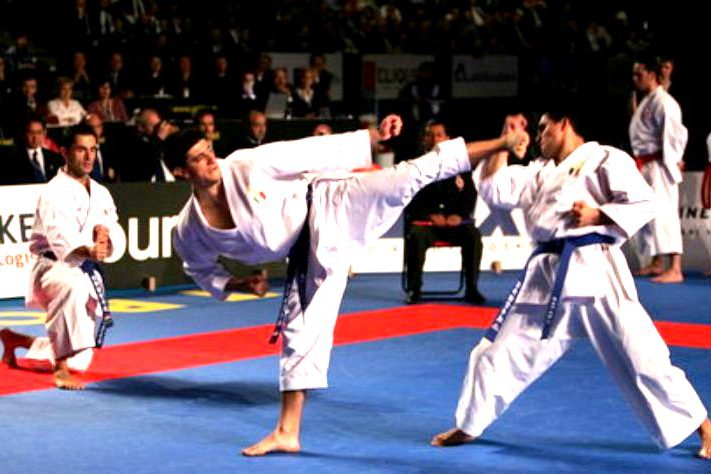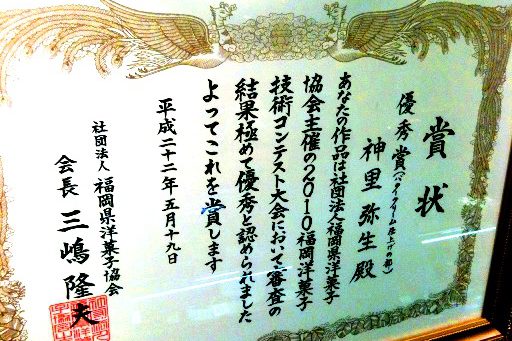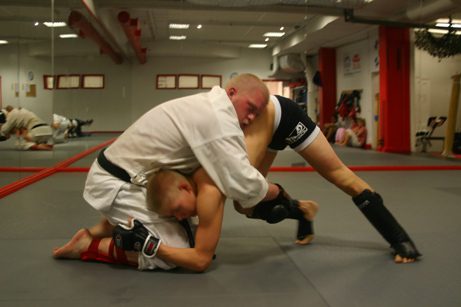A while back I received an e-mail.
It went:
Hi,
First of all, let me tell you that your blog is just awesome!
[…]
Also, I would like to have your opinion about a question I ask myself so often : we Karate nerds are always looking for self-defense moves in Katas by working our Bunkai, right? And principles underlying techniques are more important than techniques themselves and that’s what Kata must record yes? Well, then, isn’t it a loss of time to try and find out bunkai for Katas ?
I mean, there are some very effective ready-for-use self-defense systems out there (e.g. Krav Maga) which are based on quite clever principles (in fact much close to Karate’s ones in my opinion). Shouldn’t we all then practice Krav Maga rather than Karate ? (my choice : I practice both)
Keep on writing great articles,
Best regards,
C.C.
Dear C.C: This question, I think, touches at the very heart of one of Karate’s most important (and interesting) issues.
Diversity.
A mixed blessing.
The strength and weakness of Karate.
Thus, depending on how you view and handle the incredibly diverse legacy handed down through generations of Karate teachers, you can either fail miserably or grow remarkably in this forever thought-provoking fighting tradition of Karate.
It’s all about perception.
Fact: There are more kinds of Karate nowadays than most people probably realize. Fitness Karate? Check. Self-defense Karate? Check. Searching-for-sophisticated-principles-in-kata Karate? Definitely check. Krav Maga-style Karate? Check. Sport Karate? Chiggedy check, my friend. Whatever type of Karate you can think of, somebody is most definitely already teaching and preaching it.
Let it be known that Karate, a haphazardly introduced Chinese/Siamese/Okinawan fighting tradition, later to be cultivated in and around the ancient Okinawan castle grounds of Shuri and Naha, never became a homogenous art. It isn’t now, and never was before. Sure, Japanese sources might tell you otherwise, claiming they sit on the “only” one and correct version of “Nihon Karate”, but that is a load of bull manure.
Karate has never been homogenous.
Not even in the same dojo.
Sometimes not even in the same sensei.
(Case example: Kyan Chotoku, legendary pioneer of Tomari-style Karate, taught different versions of the same kata at different ages, leading to much confusion between Shorin based branches in today’s Okinawa.)
So do what the heck you want.
There’s no golden rule. There’s no holy book describing what Karate is or isn’t. There’s just a) stuff that will take you closer to you goals, and b) stuff that won’t take you closer to your goals. Focus on the first one. There’s too many people doing the second anyway. Life’s too short for that.
I urge everyone to embark upon a quest of pursuing the kind of Karate that appeals to them.
I mean, for example; there’s no need for pounding a makiwara hour after hour if all you’re going to do is Sport Karate kumite in the end. Similarly, there’s no need to practise bunkai if you’re not interested in decoding the kata of Karate. And the great thing is – you don’t have to be.
You really don’t have to be interested in every aspect of Karate.
Sure, I am.
But you’re not me. You’re smarter than me. You pick and choose the things that really excite you, and work on those. That’s why you’re a Karate nerd, and that’s why you’re reading this right now. I’m just weird. I happen to love every part equally much, and there’s nothing I can do about it. Don’t be me.
Don’t have headaches.
You are on a quest for Karate-awesomeness in what excites you.
So, if self-defense is what really floats your boat, then learn everything you can about it. Look at systems like Krav Maga. There are many self-defense systems out there, I look at them whenever I can (trying to steal their techniques and ideas). Because, if they have done their homework, they will have rediscovered what has already been known in Karate for ages, yet rarely been taught in an effective manner. Search, and you’ll find. Steal stuff. Copy techniques. Be ruthless. Be an artist. Take inspiration from everywhere.
Do it for yourself, and for everyone else who’s training Karate in the world.
Because what floats your boat might actually sink mine.
It’s like, if the Karate of your dreams doesn’t exist… you will just have to design it. Nobody’s stopping you. Start today. I already told you you’re smart.
Okay, here’s a weird idea: let’s compare with alcohol. Do you want to get totally wasted? Many (young) people certainly do. So they get some fast, effective dirty, raw… vodka? Or sake, if we’re keepin’ it Japanese, aight! It will take them to their goal of getting drunk pretty effectively. Other (old) people are probably not interested in getting sh*tfaced, so they’ll get some good quality aged wine instead. And as we all know, a good wine is a combination of the soil, the sun, the grapes, the moisture, fermentation, bottling, and aging – just to name a few elements. It is sophisticated. It has another goal.
But both are still alcohol.
However, they don’t appeal to the same people.
You can’t market Italian wine and Russian vodka to the same people!
Unless they’re alcoholics, of course (I sense this metaphor is going out of hand…)
What I’m saying is: There is not one recipe for Karate. There’s several. In fact, there’s as many as there are senseis. And if you’re lucky enough to find one whose thoughts and ideas resonate with you, then you can be considered lucky. And if you ain’t found one yet, search. Or create one. Become one. Nobody’s really stopping you. You wouldn’t be the first. Create yourself.
Do it.
Redesign your karate to incorporate both this and that, in a healthy amount (getting shitfaced every day is probably not a good idea.)
I mean, if there is lifestyle design, why can’t there be Karate design?
Surely, for many people Karate is a lifestyle, isn’t it?
Why should it not be what you want it to be? And why shouldn’t you be able to change direction of your Karate ship whenever you decide to sail through some other area in the vast sea of Karate? Huh?
Oh… that’s right.
I forgot.
We’re not “allowed” to.
Forever shackled by the chains of tradition.




11 Comments